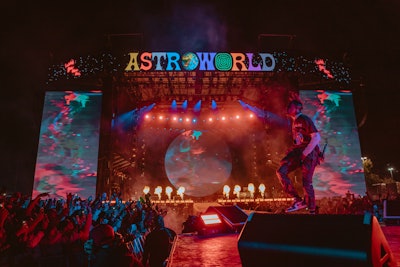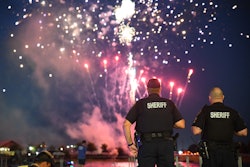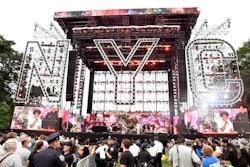
On Nov. 5, a group of 50,000-plus concertgoers surged toward the Astroworld main stage at Houston’s NRG Park to see festival founder and headliner Travis Scott. The incident left hundreds injured and at least 10 dead. The organizers of the festival, including Scott and concert producers Live Nation and ScoreMore, currently face lawsuits filed by victims and the victims’ families totaling millions of dollars.
Many attendees (and those who weren’t in attendance) believe that breakdowns in security, communications and setup, including lack of signage and clear pathways for security and medical personnel, contributed to the tragedy.
While Steven Adelman, vice president of the Event Safety Alliance, says that it’s “too early to judge” when it comes to determining cause—adding “rarely do we identify the correct culprits for the correct reasons at the beginning"—there are lessons that event planners can learn from the Astroworld tragedy that can help them produce safer events in the future.
1. Evaluate potential risk.
“Work out what the reasonably foreseeable risks are, have a plan for them, have a back-up plan for the plan, reassess and carry on,” says Lloyd Major, CEO and founder of Halo Solutions, a U.K.-based company that specializes in event and venue management, including event safety software.
This includes devising a comprehensive crowd management plan, says Steve Allen, founder of Crowd Safety, a U.K.-based event safety consulting firm that provides professional crowd, fire and event safety services. “This should not just be limited to concerts though. Wherever crowds are there will always be a risk, admittedly this is proportional to the event, but nevertheless, crowds can turn dangerous very quickly and as such need to be managed with foreseeable risks identified after a clear understanding of the event and its audience, with historical incidents and audience needs considered.”
Scott has a record of inciting fans at his shows, including previous Astroworld festivals, such as baiting them to overturn metal barricades and rush security—which some point to as a warning sign that producers did not heed.
2. Manage the crowd.
Organizers need to anticipate the crowd’s behavior, then monitor activity during the event. Major says that personnel should be “well-trained, properly positioned, and located to see and empowered to act if they believe they see something going wrong.”
Allen says that such a team should consist of four to six personnel positioned on the main stage, front of stage barrier and front of house. “I must stress that these personnel are to be independent of the security team and must have a thorough understanding of crowds, crowd terminology and radio communications. They must be calm and not overreact, but give clear and concise updates constantly, dynamically assessing their own specific areas that overarch with others,” he explains.
Major adds that new technology that produces heat maps of crowds overlaid on CCTV is currently being developed but that it needs more robust analysis. “Crowd tension monitoring is an emerging field, and very few people anywhere are combining capacity, density and tension together. In fact, I think the first event in the world to do it full scale will be Soundstorm 2021 in Riyadh.” (Dubbed Saudi Arabia’s largest music festival, the event is set to take place Dec. 16-19.)
3. Conduct tabletop exercises.
After a plan is established, organizers need to conduct tabletop exercises using realistic scenarios. “The tabletop exercise serves as a gap analysis to organizers and others in advance of their event and allows them to shore up areas where voids are identified,” Allen explains. “It should be used as a tool, not a hindrance,” he added. “Better to get it wrong here than in a real-life situation.”
Amidst all of the speculation regarding what went wrong at Astroworld, Major says that “I’d be more interested in knowing what happened in the tabletop exercises and what was written in the show-stop plan as well as what was written in the event log. Perhaps the decision was based upon logic that, whilst it led to a tragic outcome, was easy to understand at the time and maybe if we knew what they knew, when they knew it, we’d have made the same decision. That’s the ultimate test.”
4. Set up a main control room.
“An event of Astroworld’s size should have had a multi-agency event control room,” Allen says, “with representatives from each key agency present, including the organizer, Apple [which livestreamed the event], police, fire, medical (private and state), county representatives, security, production, waste management, CCTV, merchandise, volunteer teams, transport, a venue representative and social media teams.” He added that it’s typical to include a board displaying reported incidents and the actions taken.
According to Astroworld’s 59-page event operations plan, organizers did use an incident management system and set up an event control center. It stated that “all operations surrounding safety and security will flow through the ECC and a log of all requests for service will be maintained.”
5. Communicate effectively.
Since cell service can be inundated during a large-scale event like a music festival, it’s important to devise a robust communications plan with noise-canceling headsets and radios, and hire third-party vendors to test the system within the infrastructure, Allen says. “Will you want the event control communications recorded? An override facility where you can block out all other traffic in any emergency?” he asked.
6. Establish show-stop procedures.
Scott’s spokesperson Stephanie Rawlings-Blake told “CBS Mornings” that, according to the festival’s operations plan, “only two people that are, have the authority to stop the concert, were the executive producer and the concert producer,” adding that Scott “was not responsible for this, but he wants to be responsible for the solution.”
According to Crowd Safety, a show stop involves the rapid and controlled interruption of a performance in order to prevent risk to life of a tangible or intangible situation. The performance can then resume if deemed safe to do so.
“I feel that some organizers consider the term ‘show stop’ as a cancellation of the event when, in fact, it’s actually an emergency management system that is used when everything else is in place but something—be it terrorism-related, structural collapse, fire or major crowd-related incident—has occurred,” Allen explains.
“If, like Astroworld, the festival director and executive producer are the only people that can call a show stop, then they need to be in an accessible position where they can be immediately identified on the side of the stage,” Allen adds. “The artist and artist’s representative need to be aware of these people and their actions in advance.”
7. Design with safety in mind.
Alex Pollak, CEO of ParaDocs, the medic company hired by Astroworld organizers, told CNN that the challenge was not resources or staff but the difficulty of getting in and out of the dangerous crowd to reach those in need of medical help.
"We never came close to running out of equipment and supplies. We could have treated at least double the amount of patients. We never expected in our lives to encounter a situation like that. It was absolutely horrific," Pollak told CNN.
Concertgoers reported similar issues, saying that the festival footprint prevented security and medical personnel from easily accessing the crowd. In situations like this, a clear path lined with emergency lights should be wide enough to allow attendees and emergency staff and vehicles to access the front of the house or stage area.
8. Train personnel and hire specialists.
Darius Williams told local news station KPRC-TV that he applied for a staff position with Contemporary Services Corporation, the company tasked with hiring security personnel, just days before the Astroworld event. “My background is in hospitality and retail,” Williams said. “I don’t have any background in security. Basically, if you can pass the background check, then you’re hired. Essentially, there didn't seem to be much interest in what we did prior or if we had security in our background.”
Although CSC did conduct licensing exams for a level II security officer, Williams told the station that “the training class seemed so rushed. It was a free-for-all. Find the answers so we can go home. One of the first red flags I picked up [was that] there was nothing event-specific. There wasn’t anything geared towards working a music festival or any large-scale gathering.” After arriving at the site early Friday morning, he said that he “didn’t feel like I was safe or prepared for anything that would have happened,” and ended up quitting before the festival began.
“There is a global labor shortage now, and that hinders the ability of security companies to staff events with experienced workers,” Adelman explains. “A massive amount of institutional knowledge and judgment has gone somewhere else, which is particularly challenging in an industry where we make plans with the certainty that we will have to be flexible when implementing them and be prepared to make changes on the fly.”



















